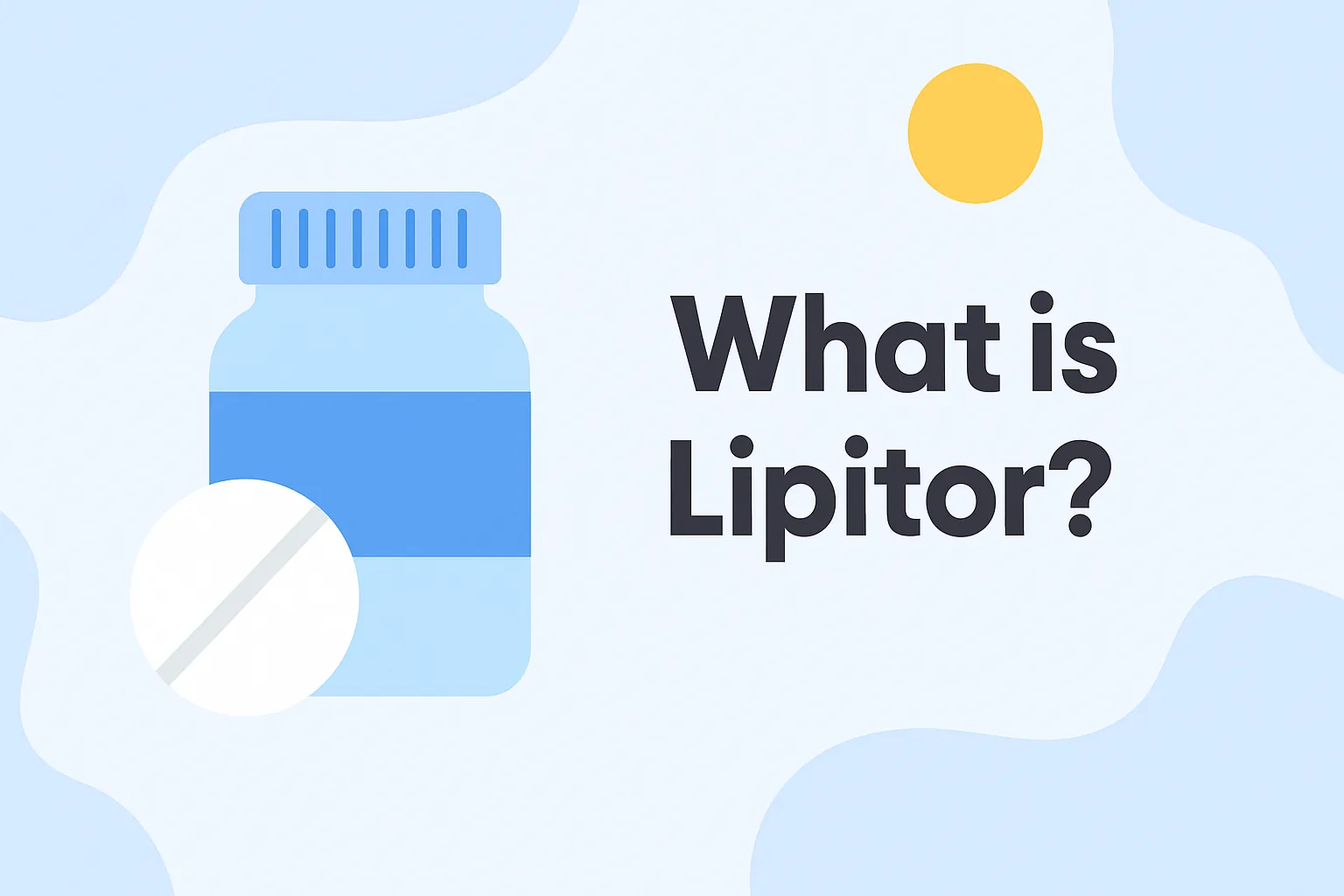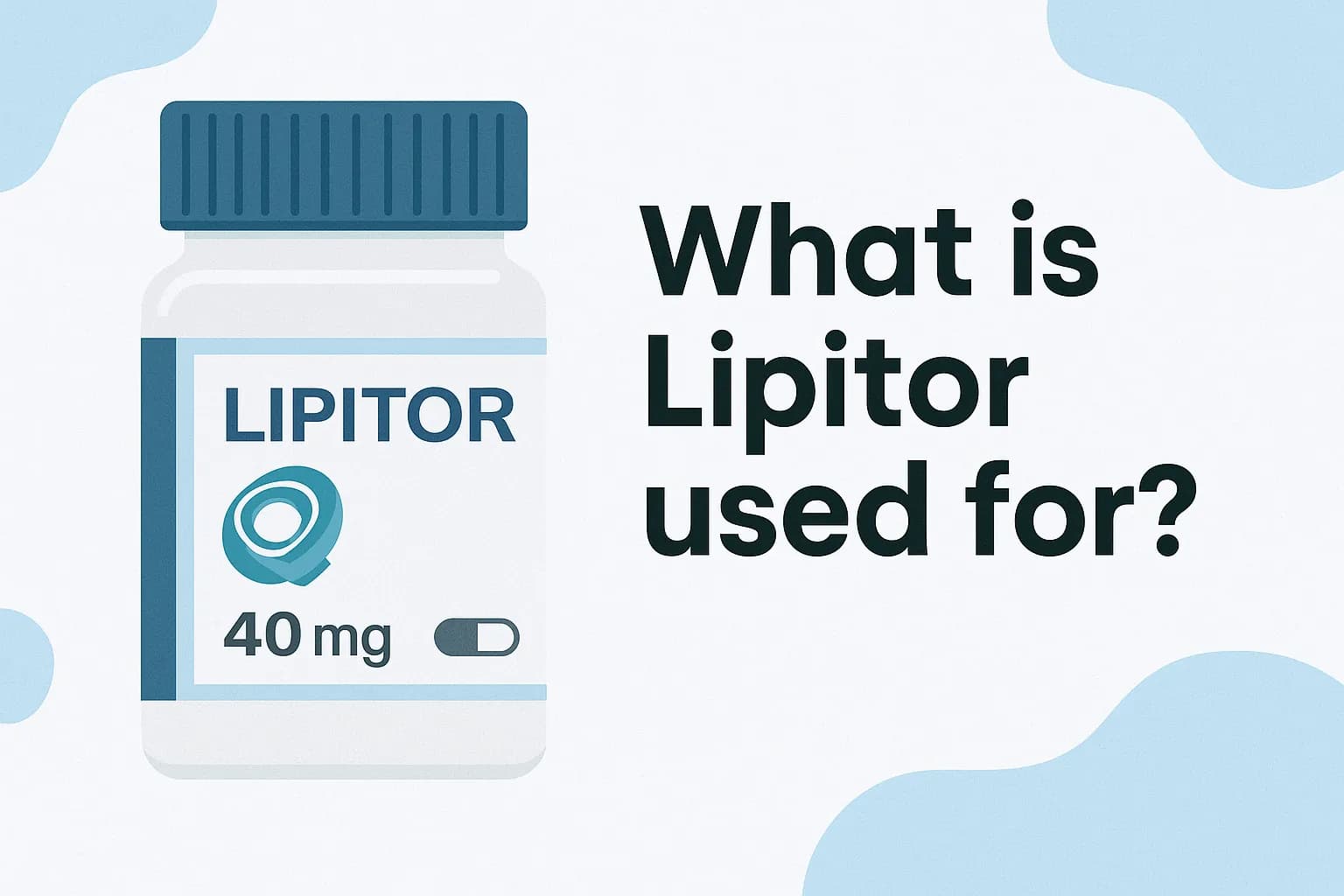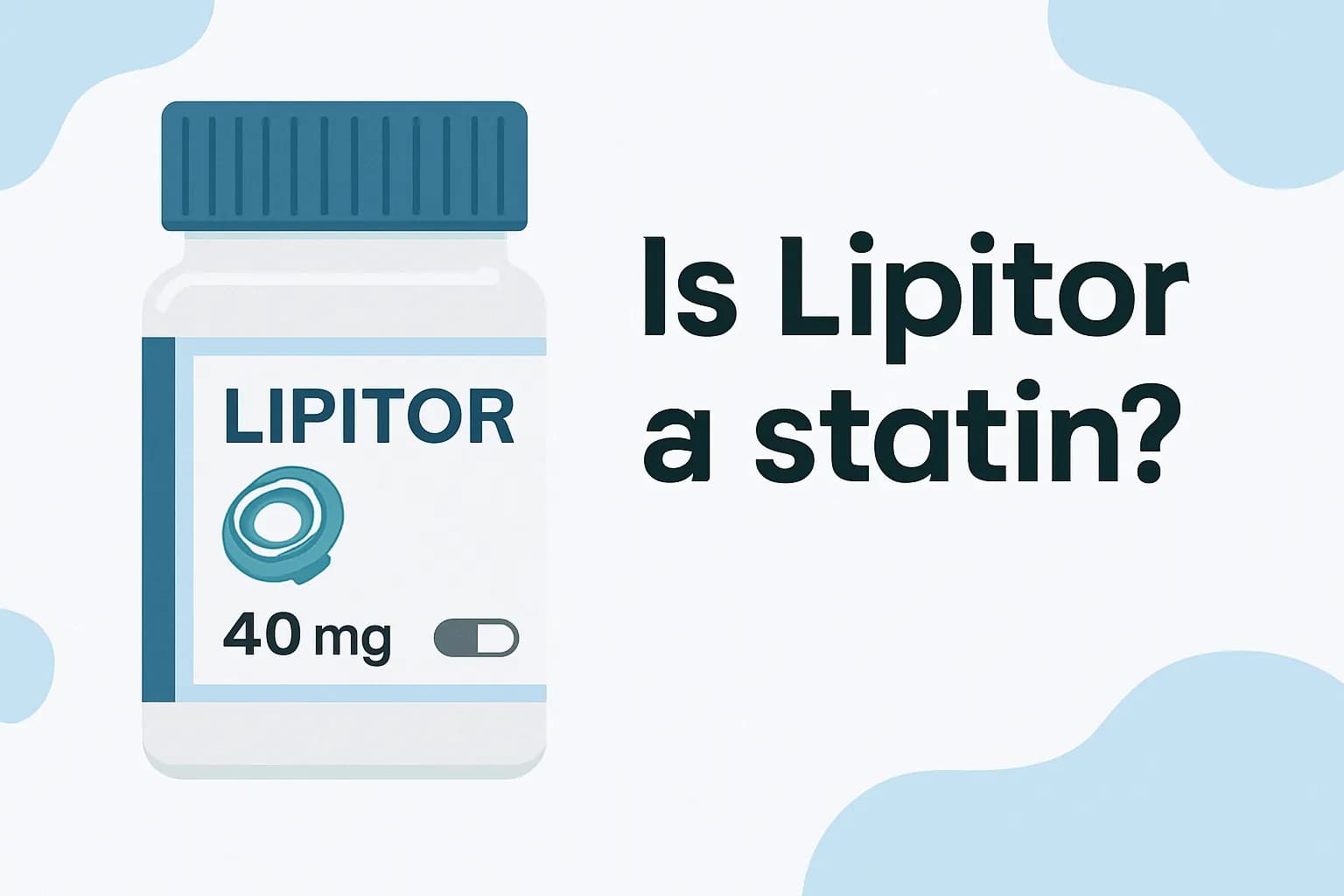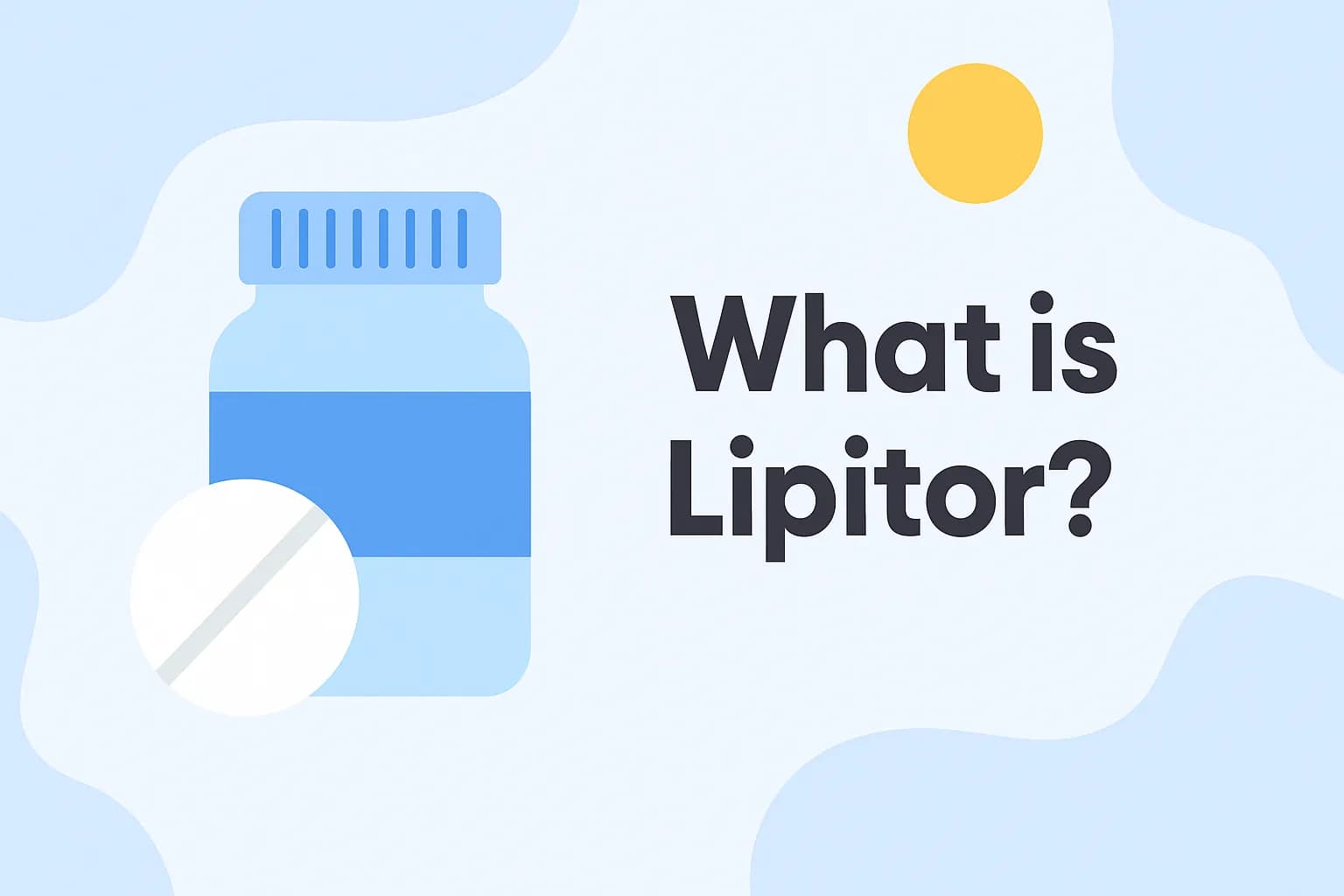What is Lipitor?

Lipitor (atorvastatin) is a brand-name medication that is used along with a healthy diet to lower your bad cholesterol (LDL) and triglycerides while also increasing your good cholesterol (HDL). Clinical studies have shown that Lipitor decreases LDL cholesterol by 25% to 60% depending on the dose taken. Patients in these studies also saw around a 7% increase in their HDL levels.
Lipitor comes in 10 mg, 20 mg, 40 mg, and 80 mg film-coated tablets that should be swallowed whole. It can be taken with or without food and is typically taken once daily.
Keep reading as we will go into more detail about what Lipitor is used for, its side effects, and answer some frequently asked questions.
Lipitor FAQs
What conditions does Lipitor treat?
Lipitor is approved by the U.S. Food and Drug Administration (FDA) to be used:
- To reduce the risk of heart attack, stroke, chest pain, and certain types of heart surgery in adults who don’t have coronary heart disease but have other risk factors for heart disease such as diabetes or high blood pressure.
- To reduce the risk of heart attack and stroke in adults with type 2 diabetes mellitus (T2DM) who do not have coronary heart disease but have other risk factors for heart disease.
- To reduce the risk of heart attack that does not cause death, stroke, certain types of heart surgery, hospitalization for congestive heart failure (CHF), and chest pain in adults with coronary heart disease.
- Along with diet to lower bad cholesterol (LDL-C) in adults and children 10 years of age and older with heterozygous and homozygous familial hypercholesterolemia.
- Along with diet for the treatment of adults with high triglyceride levels.
What are the possible side effects of Lipitor?
The most common side effects of Lipitor seen in clinical trials include:
- Common cold symptoms such as runny nose or sore throat
- Joint pain
- Diarrhea
- Pain in arms and legs
- Increased risk of urinary tract infections (UTI)
Other possible side effects include:
- Indigestion
- Nausea
- Muscle pain or weakness (myopathy)
- Insomnia (trouble sleeping)
- Constipation
- Memory loss or impairment, forgetfulness, and confusion
Rarely, Lipitor may cause serious side effects such as:
- Life-threatening allergic reactions, including anaphylaxis
- Severe muscle pain and damage (rhabdomyolysis)
- Increased risk of liver problems and potential liver failure
- Increased blood sugar levels
- Harm to unborn and breastfed babies
Always seek medical advice from a healthcare professional. You can report side effects to the FDA at 1-800-FDA-1088 or visit www.fda.gov/medwatch.
How does Lipitor work in lowering cholesterol?
The active ingredient in Lipitor is atorvastatin calcium, which is considered an HMG-CoA reductase inhibitor (statin). It works by blocking the enzyme in your liver that makes cholesterol. This helps lower your bad cholesterol (LDL) and raise your good cholesterol (HDL) while also lowering your triglyceride levels.
What should you tell your healthcare provider before taking Lipitor?
Do not take Lipitor if you are allergic to atorvastatin or any of its inactive ingredients. Let your provider know if you have or have had any of the following:
Shop Medications
- Unexplained muscle aches or weakness
- Liver disease
- Drink more than 2 alcoholic beverages daily
- Diabetes
- Thyroid disease
- Kidney disease
- A previous stroke
- Are pregnant or planning to become pregnant
- Are breastfeeding or planning to breastfeed
Are there any drug interactions with Lipitor?
Tell your healthcare provider about all medications and supplements you are taking. Some known interactions include:
- Other cholesterol-lowering medications such as gemfibrozil, fenofibrate, and niacin
- Colchicine
- Antifungals or antibiotics like rifampin, clarithromycin, erythromycin, ketoconazole, voriconazole, and itraconazole
- Birth control pills
- Immunosuppressants like cyclosporine
- Antivirals for HIV or hepatitis C
Will you need to take Lipitor long-term?
Yes, Lipitor typically needs to be taken long-term to be effective. Depending on your condition and response, you may be on Lipitor for years. Lifestyle changes should be used alongside the medication.
Is Lipitor safe?
Lipitor is generally considered safe and well-tolerated. It has been studied in children and adults and has been used for over 20 years. While serious side effects are possible, most people experience only mild symptoms such as diarrhea, joint pain, and cold symptoms. Always talk to your doctor if you have concerns about side effects.
What should you do if you take too much Lipitor?
If someone has overdosed and has serious symptoms such as trouble breathing or passing out, call 911 immediately. Otherwise, contact a poison control center at 1-800-222-1222.
How long does Lipitor stay in your system?
Lipitor has a half-life of about 14 hours, meaning it stays in your system for approximately 3 days. It generally takes around 5 half-lives for a medication to be fully eliminated from the body.
Is Lipitor a blood thinner?
Lipitor is not a blood thinner. It is a statin that reduces cholesterol by inhibiting an enzyme in the liver. While it can reduce platelet activity, which may lower the risk of clot formation, it should not be used as a replacement for a blood thinner.
Related Medications
- Zocor (simvastatin)
- Zetia (ezetimibe)
- Vytorin (ezetimibe/simvastatin)
- Crestor (rosuvastatin)
- Livalo (pitavastatin)
- Pravachol (pravastatin)
- Mevacor (lovastatin)
Sources
- Lipitor Medication Guide
- Lipitor Prescribing Information
- Medscape
- Prescriber’s Digital Reference
- James W. Nawrocki et al., “Reduction of LDL Cholesterol by 25% to 60% in Patients With Primary Hypercholesterolemia by Atorvastatin,” Arteriosclerosis, 1995. DOI





